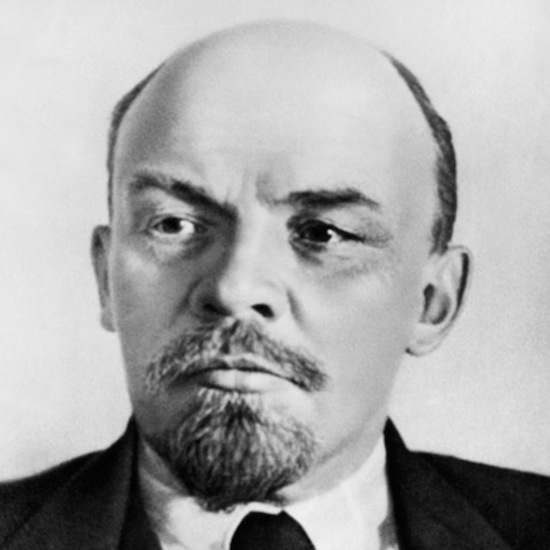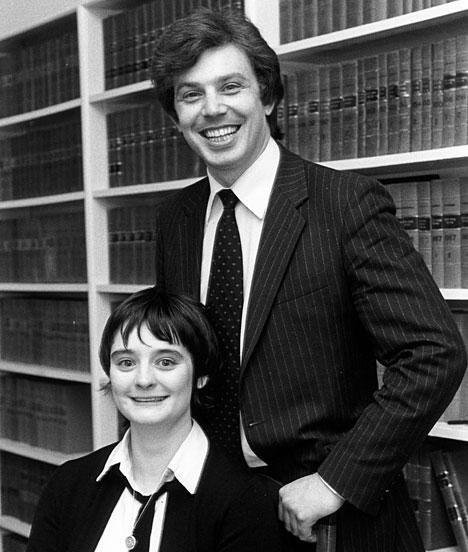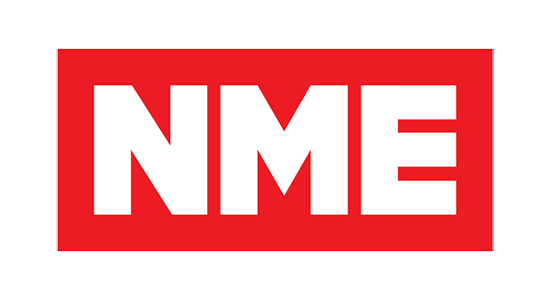While out taking his daily constitutional in Central London, David Stubbs happened across a skip outside the offices of Britain’s top music weekly, featuring their mammoth retrospective on the history of rock music. It’s a fascinating document but, as a scrawled note in the top corner makes clear, these are uncorrected proofs; there is a misspelling of Richard Ashcroft’s mother’s name which would have been amended in the final edition. Now read on . . .
THE NME PRESENTS…
50 YEARS OF ROCK HISTORY 1956-2016
2016 marks the half century of rock & roll since Elvis Presley first shook up the world in 1956 with ‘Rock Around The Clock’, paving the way for even bigger and better stars like Jake Bugg and our surefire tips for the top in 2016, Carlisle’s The Vacuum Cleaners. It was a different world 50 years ago. The youth didn’t have today’s distractions like Pete Doherty’s latest antic or Noel Gallagher criticising rap music for being superficial. They had to sit in coffee bars and wait for Richard Ashcroft to be born. The wars between the mods and rockers led to rationing, with people forced to live in black and white right through until 1967 because of colour shortages. What’s more, people had to pay for their weekly “fix” of the NME, not like in today’s post-money age. Still, it wasn’t all bad, as this informative guide put together by our experienced senior staff, some of whom were born in the 20th century, shows.
1956
Richard Ashcroft’s mother, Valerie, celebrates her 10th birthday. Little Richard changes his name to Cliff Richard, and is forced to change his race from black to white due to prejudice.
1958
Jerry Lee Lewis makes his first album, The Nutty Professor. Later, he will team up with ace producer Jimmy Jam and as Jam And Lewis they will produce Michael Jackson’s sister Janet.
1960
Eleven years before Richard Ashcroft is born. The “1960s” begin.
1962
Elvis Presley joins the Army. The Russians immediately respond by moving a shipment of weapons to Cuba and The Bay Of Pigs Missile Crisis ensues, costing American President Charles Kennedy his life.
1963
THE BEATLES! This is the year they put Manchester on the map with their hit ‘Yeah, Yeah, Yeah (All She Needs Is Love)’. Featuring John Lennon, George Harrison, Paul McCartney and Freddie Starr. They would dominate British rock until they disbanded in 1980 when Lennon was assassinated in Los Angeles, New York and McCartney finally found fame for giving birth to top designer Stella McCartney and vegetarian cook Linda.

John Lennon
1964
Inspired by The Beatles, Tamla Motown make their own, diluted version of the “Mancbeat sound”, with hits like Diana Ross & The Supremes’ ‘Baby Love’, Diana Ross & The Supremes’ ‘Love To Love’, Diana Ross & The Supremes’ ‘Love Love’ and Diana Ross & The Supremes’ ‘I Love Love’.
1965
Only six years to go until Richard Ashcroft is born. Meanwhile, The Rolling Stones, led by Mick Jagger and Cliff Richard have their first hit, ‘Gimme Satisfaction’. Their controversial career comes to a head when Hells Angels beat a fan to death at the 1968 Eurovision Song Contest while they perform their hit ‘Congratulations’.
1966
Pet Vibrations is a huge success for The Beach Boys, led by the brothers Dennis, Carl and Harold Wilson who retired from music in the mid-60s altogether to become leader of Britain’s Taxman Party, in coalition with jazz bandleader Ted Heath.
1967
Still four years before the birth of Richard Ashcroft. Jimmy Hendrix and The Experiences form, featuring drummer Warren “Mitch” Mitchell and Otis Redding.
1968
The most dominant band at this time is The Doors led by Van Morrison, who are purveyors of the East Coast LA sound and are a precursor to modern bands like The Arcade Monkeys and The Arctic Fire. Although he is buried in Paris, Van still enjoys a fruitful solo career as a covers artist playing songs by Irish singer Van Morrison (no relation).
1968 is also a big year for The Velvet Underground, featuring Lou Reed, Nico and rocking Welshman J.J. Cale, who leaves the group and forges a solo career, which stretches to the early 1980s and the album Music For A New Society, featuring the hit singles ‘This Old House’ and ‘Green Door’.
1969
Les Zeppelin, aka Jimmy Page, releases his debut album. For reasons he refuses to explain, it features a picture of an enormous balloon shaped flying object on the front cover.
1970
Jimmy Hendrix dies, having choked on his own guitar while trying to swallow it in mid-performance and setting fire to himself at the same time. His actions bring an immediate end to the Vietnam War.
1971
RICHARD ASHCROFT IS BORN! The rock era begins at last. Three of the four ex-Beatles bring him gifts of gold, frankincense and myrrh. John Lennon, however, in bed with his wife Yoko Lennon simply sends a message saying, “Bag”.

Richard Ashcroft
1972
Richard Ashcroft’s first birthday. Also, the rise of David Bowie, whose multi-platform shoes will inspire some of the most important developments in 21st century rock, including brand strategy development in the digital age. David Bowie (pronounced “Day-vid”), will go through many “ch-ch-ch”- character alterations over the years, first as the glam rocker “Ziggy Stardust”. He then reinvents himself as the cool, Germanic obsessive “Brian Eno” before making the 1980s transition to red dancing shoe-wearing guitarist “Nile Rodgers”.
1974
Richard Ashcroft’s third birthday!
1975
Bob Springsteen (born Bruce Zimmerman) releases his first album The Times They Are A-Born To Run. “When I’m not being confused with Bob Dylan, I’m being confused with Bruce Springsteen,” he complains.
1976
Richard Ashcroft’s fifth birthday!
1978
Debut of the year is by English group The Bee Gees, led by John Travolta and their album Saturday Night Fever. They call their new style “disco” and it is widely imitated by acts like Funkadelic and The Trammps on the New York dance scene.
1981
Richard Ashcroft celebrates his tenth birthday!
1983
The Smiths burst onto the scene. Comprising Morrissey, Johnny Marr, Andy Smith and Mike Smith, their stated aim is to bring an end to all reggae in the UK. They succeed within six months.
1985
The year of LIVE AID. Following a harrowing investigation by BBC reporter Michael Buerk into the dire state of the live rock music scene, Midge Ure decides something must be done. And so, a huge concert is organised at Wembley Stadium to help out rock acts in their hour of need. The concert proves of enormous benefit to acts like Status Quo, U2 and Queen, as the public give generously, and they never look back. Some of the money left over from the concert is sent to Africa to help them build a giant, fretboard-shaped pier off the north end of the continent.
1989
The Stone Roses host the first Acid House event, with their squelching Roland 303-driven hit ‘I Wanna Be Adored’ the highlight.
1990
THE VERVE FORM!! But owing to an immediate protest from the jazz label Verve, they must make a name change and for their first few years are simply known as “The”.
1991
Grungers Nirvana have a big hit with their single ‘Smells Like Team Spirit’, whose homage to playing as a group rather than going solo is thought to have been inspired by Roxy Music’s ‘Let’s Stick Together’.
1993
In an East London pub, four young men from Colchester hatch the idea of forming a pop group of British origin. They come up with the phrase “Britpop”, which swiftly catches on and soon, a mass movement is born. The name of the group? Parklife.
1995
This was the year that saw The Beatles storm to the number one spot with their album Revolver. Owing to accusations of plagiarism and to avoid confusion, however, the group were forced to change their name to Oasis, and the name of the album to (What’s The Story) Morning Glory?.
1996
The twentieth anniversary of PUNK ROCK, a movement too easily forgotten, which was led by Johnny Vicious and his group the S*x Pistols whose lyrics such as “I love the NME” succeeded in ensuring that dinosaur groups like Pink Floyd were never heard of again. The punk ethos was brutally simple: Spitting. Anyone can do it.
This year also saw captain Bobby Gillespie and hat-trick hero Geoff Travis lead England to win the 1996 World Cup Final, sponsored by NME. America was now officially part of the United Kingdom, an event commemorated in the Baddiel/Skinner song “America’s Coming Home”.
1997
The year was overshadowed by an astonishing event of colossal emotional significance to a vast number of people. Everyone can remember where they were and what they were doing when they first heard that The Verve had released their album Urban Hymns. Tony Blair caught the mood of the nation when he described Richard Ashcroft as “the people’s lead vocalist”, while fan Elton John described him as a candle in the wind. Meanwhile, thousands gathered outside Buckingham Palace demanding that The Queen do something to commemorate and acknowledge this decisive event in human history. The NME responded by putting The Verve on the front cover. Melody Maker followed suit in 1992.

The Libertines
The 21ST CENTURY
From The Libertines to Babyshambles, the 21st century is shaping up to be one of the best centuries ever for rock music. Who can forget such hot names, tipped for the top by the NME such as The Sweat Buckets (2003), who represented a refreshing return to basic, raw, honest, indie guitar rock, The Mumbling Lanterns (2004), who represented a refreshing return to basic, raw, honest, indie guitar rock, Frogsore (2005), who represented a refreshing return to basic, raw, honest, indie guitar rock, The Silicon Apes (2007), who represented a refreshing return to basic, raw, honest, indie guitar rock, My Guitar Is A Guitar (2009), who represented a refreshing return to basic, raw, honest, indie guitar rock, Jason Buttock (2011), who represented a refreshing return to basic, raw, honest, indie guitar rock and Inane Bear (2014) who represented something quite different to what had gone before them – a refreshing return to basic, raw, honest, indie guitar rock.
Who knows what the future will bring? Perhaps a refreshing return to basic, raw, honest, indie guitar rock is on the cards? Let’s hope so! One thing’s for sure – in 50 years’ time, in 2056, you’ll be reading all about it in the NME!


